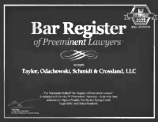Understanding Estate Planning Basics
Estate planning involves preparing for the distribution of your assets after your death. This includes creating documents such as wills, trusts, and powers of attorney to ensure your wishes are honored and your estate is managed properly. Without direct heirs, it becomes even more crucial to plan carefully to ensure that your assets are distributed in a manner that reflects your preferences.
Key steps in estate planning without heirs include:
- Designating Beneficiaries: If you don’t have direct heirs, you can name other individuals or organizations as beneficiaries. This might include relatives, friends, or charitable organizations. Clearly outline who will receive your assets to avoid confusion and potential disputes.
- Creating a Will: A will is a fundamental document that outlines how your assets should be distributed. It’s essential to specify alternate beneficiaries and guardians for any dependents or pets you may have.
- Establishing a Trust: Trusts can be useful for managing your assets during your lifetime and distributing them after your death. They can also help avoid probate, the legal process of distributing your estate. A trust can be especially beneficial if you want to provide for individuals or organizations not directly related to you.
- Appointing an Executor: Choose a reliable executor who will be responsible for managing your estate according to your wishes. This person will handle your assets, pay any debts, and ensure that your estate is distributed as outlined in your will or trust.
- Planning for Medical and Financial Decisions: Designate a durable power of attorney to make financial decisions on your behalf if you become incapacitated. Similarly, a healthcare power of attorney will ensure that someone you trust makes medical decisions for you if you cannot.
Without direct heirs, you might have unique concerns or wishes regarding your estate. Consider including instructions for the care of any pets, distribution of personal items with sentimental value, or charitable donations. You might also want to address any business interests or intellectual property you own.
Legal and Tax Implications
Consulting with an estate planning attorney is crucial to understanding the legal and tax implications of your estate plan. Estate taxes, while less common due to higher exemption limits, can still impact larger estates. An attorney can provide guidance on minimizing taxes and ensuring compliance with state laws.
Regularly Update Your Plan
Your estate plan should be regularly reviewed and updated, especially if circumstances change. This includes changes in financial status, relationships, or personal wishes. Keeping your plan current ensures that it accurately reflects your intentions and adapts to any legal or tax law changes.
Contact Our Experienced Estate Planning Lawyers Today
At Taylor Odachowski Schmidt & Crossland, LLC, we understand the unique challenges involved in estate planning without direct heirs. With nearly three decades of experience, we are well-equipped to help you create a comprehensive plan that reflects your personal values and ensures your legacy is preserved. Whether you’re looking to provide for friends, charitable organizations, or other non-traditional beneficiaries, our team will guide you through every step of the process.
We offer personalized solutions tailored to your specific needs, helping you navigate complex legal and tax implications with confidence. Reach out to us today at (912) 634-0955 or through our contact form to secure your future and protect your legacy.



